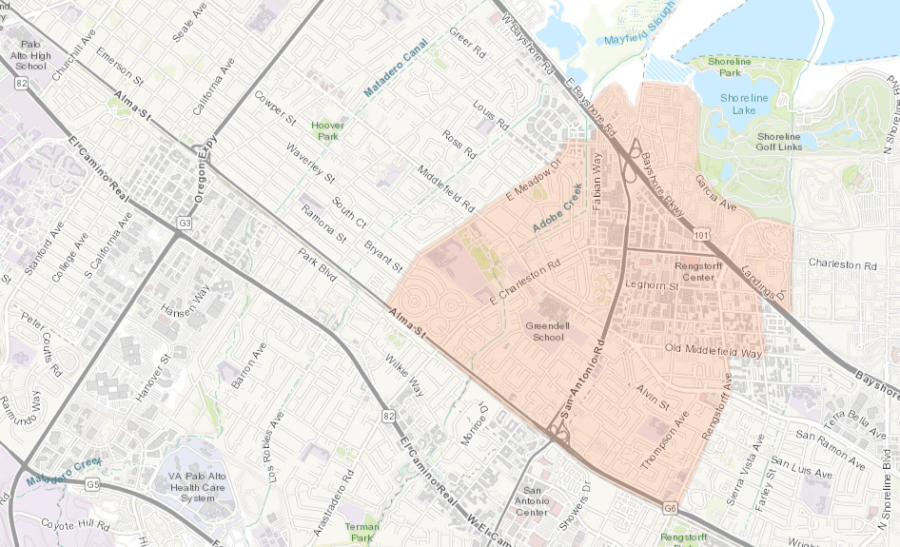Mosquitos infected with the West Nile virus were detected in Palo Alto and Mountain View on Sept. 7, prompting the Santa Clara County Vector Control District to spray affected areas with insecticide this Friday.
In Palo Alto, the treatment will take place in the areas with ZIP codes 94043, 94303 and 94306, according to a Vector Control District press release.
Starting at 10 p.m., Zenivex insecticide will be sprayed from truck-mounted equipment at an “ultra-low volume,” the release stated. The treatment will last for about three hours.
“There is no need to relocate during the treatment,” the county said in the release. “Mosquito treatments pose minimal risk to people, pets, animals and the environment. Individuals aren’t likely to breathe or touch anything that has enough insecticide on it to be harmful.”
The press release said that at night, people can take extra precautions by staying indoors and shutting all doors and windows. The insecticide will break down quickly in the morning with exposure to sunlight.
The Vector Control District release stated that the mosquitoes are not a critical health concern as the West Nile virus does not cause symptoms in most people. However, the disease still poses a health risk for adults aged 50 and older, and individuals with chronic health conditions. Common symptoms include fever, body aches, headaches and occasionally neurological damage or death in severe cases.
Vector Control Commissioner Beverly Perez-Cabrera said the infected mosquitoes were first detected in the Palo Alto area on Sept. 7 through their polymer chain reaction technology mosquito traps.
“We have PCR machines around the county, and this machine mixes all the mosquitoes and extracts the virus from the mosquitoes,” Perez-Cabrera said. “That’s how we can tell if the virus is positive in that area.”
Perez-Cabrera said that when the Vector Control District detects a mosquito trap that tests positive for the West Nile virus, it sections off a two-mile radius around the trap to be sprayed with insecticide.
Since West Nile virus is spread when an infected mosquito bites an individual, the Vector Control District recommends residents take various precautions, like wearing long-sleeved clothing, applying bug spray and staying indoors as much as possible. Perez-Cabrera also emphasized the importance of reducing the amount of stagnant water that mosquitoes breed in.
“We recommend the public dump the drain and standing water around their homes and yards,” Perez-Cabrera said. “The mosquitoes need standing water to lay their eggs and reproduce, so if there’s no water, there’s no mosquitoes.”
The Santa Clara County Vector Control District can be contacted with any questions or concerns Monday through Friday, from 7:30 a.m. to 4:30 p.m. through their hotline at 408-282-3144, or through email at vectorinfo@cep.sccgov.org. The Vector Control District’s guide to mosquito prevention can be found at vector.sccgov.org.



